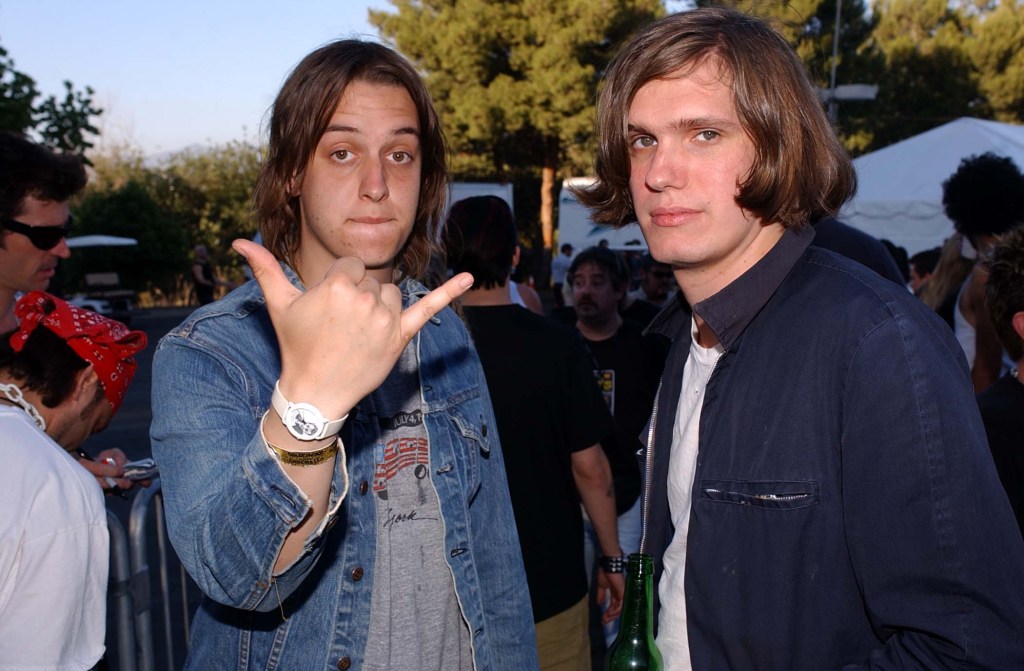An ecstatic crowd at yesterday’s Larry Levan Way block party on King Street in the West Village, Manhattan. Photo by Lauren Gesswein for Red Bull.
Yesterday afternoon, the Red Bull Music Academy presented the Larry Levan Way block party, a celebration of the mark that the Paradise Garage nightclub left on the New York nightlife landscape. Held outside of the club’s former West Village home at 84 King Street, the party was quickly filled by thousands of the club’s original attendees—many of whom are now over fifty—as well as younger ranks of disco and house devotees, who danced for hours straight in the spring sun. DJ’d by NY dance originators David DePino, Joey Llanos, and Francois K, the block party was a reminder of a different era in New York nightlife, one whose diversity was part of its strength and beauty.
Videos by VICE
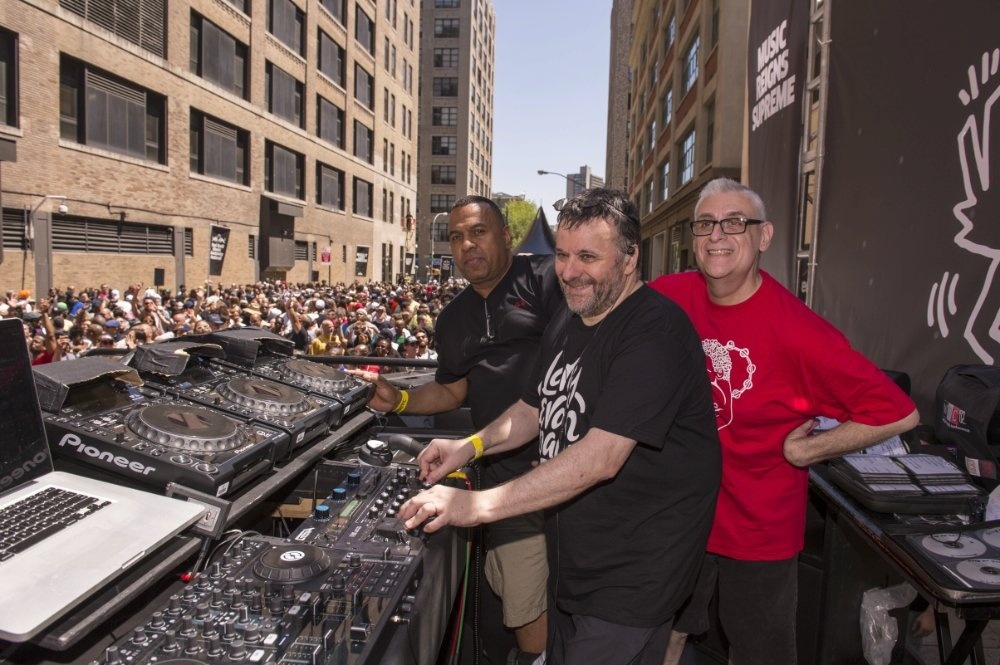
Left to right: DJs Joey Llanos, François K, and David DePino. Photo by Drew Gurian for Red Bull.
As DJ François K stepped up to the decks, framed by a black and white Keith Haring tribute to Larry Levan, I was shuffling at stage left in a circle of women who not only danced me under the table, but could have been my aunties. I saw a man in an all-white, flowing daishiki smoking a Cuban cigar while dancing to some early-80s deep cut funk record. I watched two men in bedazzled, sleeveless Paradise Garage shirts recognize each other from a half decade of clubbing—they hadn’t seen each other in thirty years.
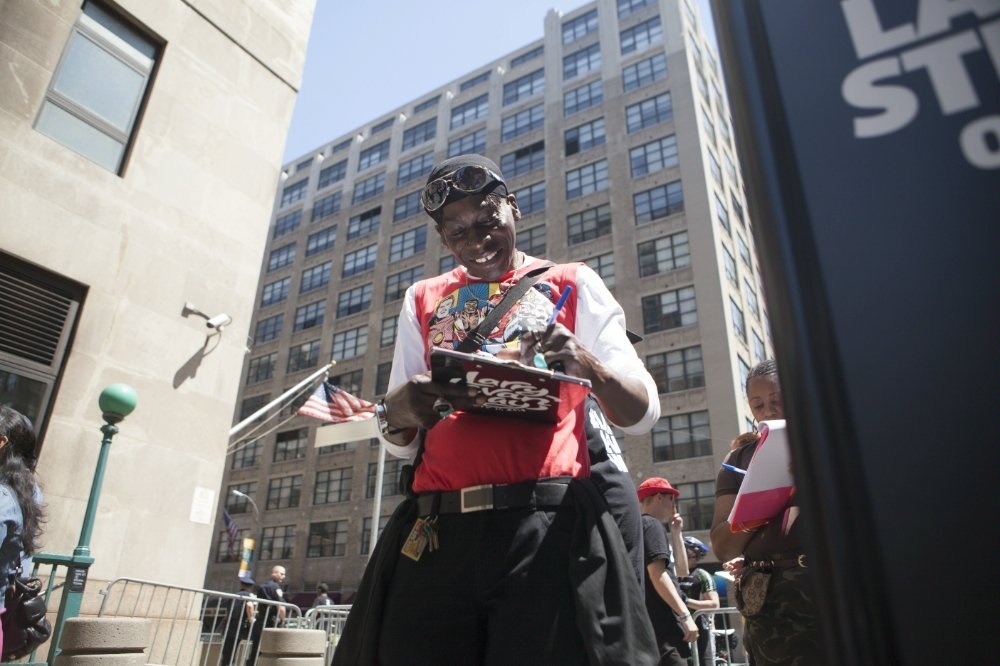
A partygoer signs the petition to rename King Street to Larry Levan Way. Photo by Lauren Gesswein for Red Bull.
In the 1970s and 80s, New York nightlife was characterized by an unprecedented mix of characters across race, gender, and sexual orientation—and the Paradise Garage at the time exemplified that diversity. Since then, its neighborhoods have developed and gentrified, its residents have become more and more affluent, and the young and moneyed have taken over the city’s Downtown nightlife. For new transplants, it might seem like the city was always this way, but walking through the crowd and meeting the many, jubilant Paradise Garage devotees, one is reminded that clubbing used to be different.
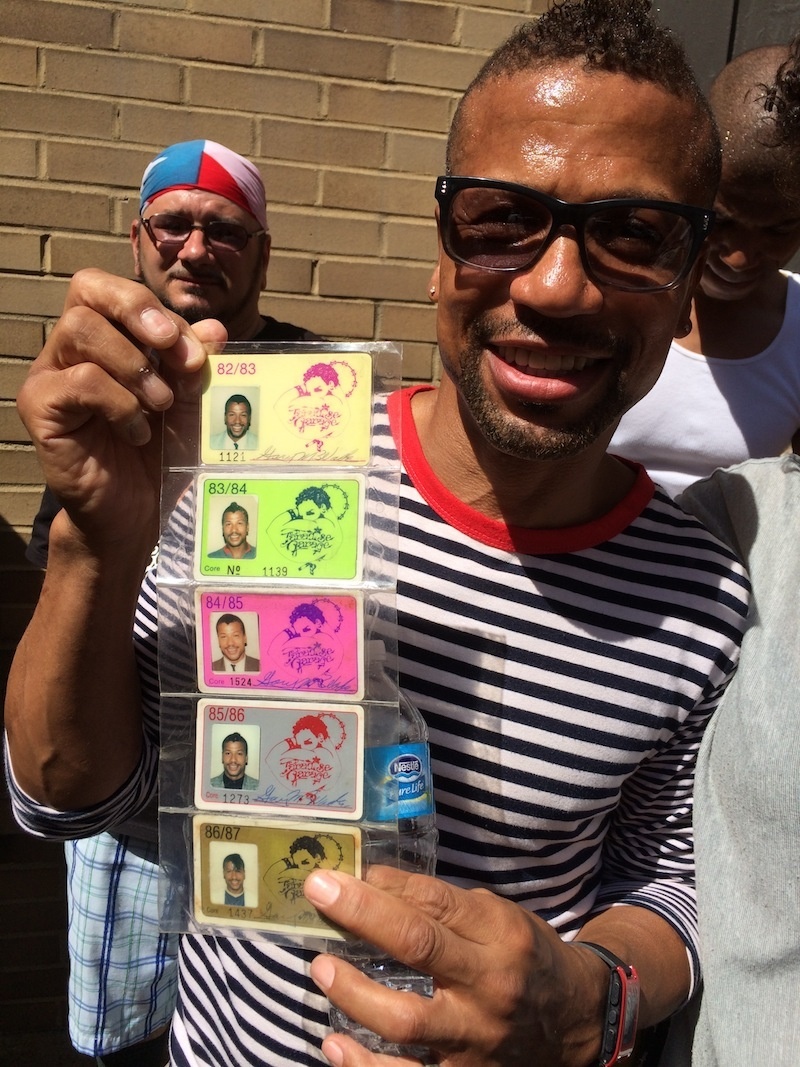
A partygoer shows off his membership cards from consecutive years at the Paradise Garage. Photo by Joe Linden.
For a city that loves to mythologize itself, I’m always struck by how few of us do our history homework. We don’t care to think too much about how the city’s cultural infrastructure got there—we’re just happy that it exists. Blog posts and magazine articles mitigate even the little bit that we do know about who and what came before us, and in the dance music realm, many of the culture’s greatest architects were lost to the AIDS epidemic before a younger generation got to know them firsthand.
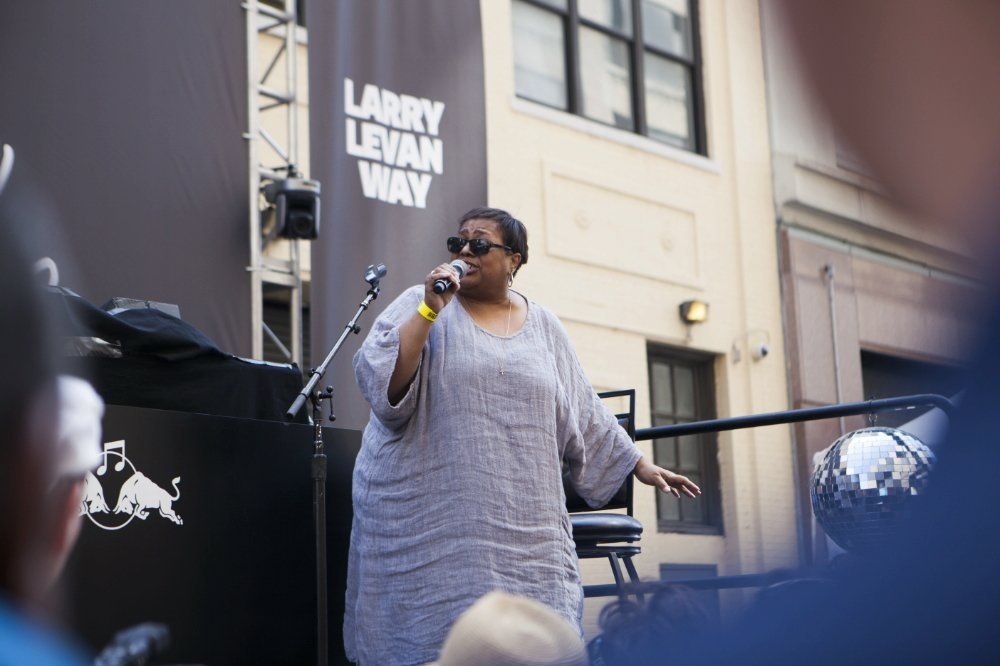
Singer Jocelyn Brown takes the stage. Photo by Lauren Gesswein for Red Bull.
These are the people that birthed the idea of nightlife as it exists now across the globe, who helped capture the imagination of so many soon-to-be NY transplants, drawn in by the pursuit of pleasure and kinship on the fringes of society. And because we so often swim in the small ponds created for us by our peers—parties that cater to us, and people like us—we never get the chance to party with them in person. What happened yesterday, for wide-eyed new recruits like myself, was that we got to meet the people that paved the way for us today, and pay respects to our elders.

The block party reached capacity early on in the afternoon. Photo by Drew Gurian for Red Bull.
New York loves to compartmentalize its nightlife based on race, gender, class, and age, and there are enough inhabitants here that if you’ve got a niche in mind, you will find people with the exact same profile. But the city’s healthiest scenes are always the most diverse, and looking around at all the revelers, it was clear that King Street on a Sunday afternoon was the perfect location—and that we’ve got work to do if we want to cultivate healthy, diverse movements like that one that we witnessed this weekend. In a city that divides itself so starkly, we would do well to hold the memory of the Paradise Garage in our collective imagination, as a reminder of how beautiful shared spaces can be.

